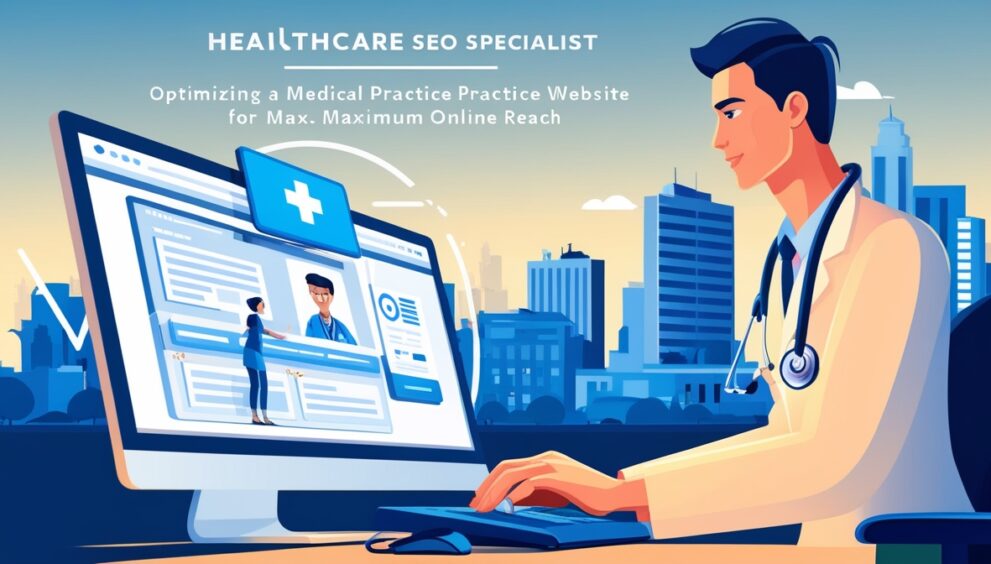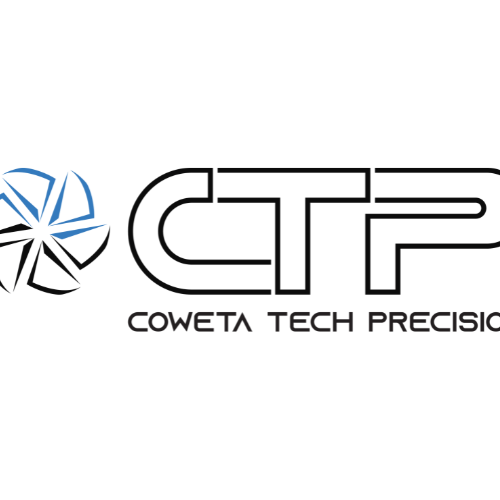Healthcare SEO Specialist: Optimizing Your Practice for Maximum Reach

In the digital age, healthcare providers face increasing competition to attract and retain patients. Patients often turn to online searches to find medical services, making a strong online presence critical for healthcare practices. A Healthcare SEO Specialist plays a vital role in helping medical practices gain visibility and reach their target audience effectively.
This article discusses the role of a Healthcare SEO Specialist and provides actionable insights on how healthcare practices can improve their online presence.
What Is Healthcare SEO?
Search Engine Optimization (SEO) refers to techniques used to improve a website’s visibility on search engines like Google, Bing, and Yahoo. Healthcare SEO focuses specifically on the medical industry, addressing the unique challenges and regulations that apply to healthcare websites.
Patients typically search for symptoms, treatments, doctors, or clinics online. By optimizing a healthcare website with specialized SEO services for Healthcare that focus on relevant search terms, practices can appear higher in search results, driving more traffic and potential patients.
Why SEO Matters for Healthcare Practices
SEO matters for healthcare practices because it helps attract more patients, builds trust, reduces marketing costs, and improves local visibility and website usability.
-
Increased Patient Acquisition: Most patients begin their search for healthcare providers online. A strong SEO presence helps practices appear at the top of search results, increasing the chances of patient inquiries.
-
Building Credibility: Websites that rank highly are often perceived as more credible and trustworthy.
-
Cost-Effective Marketing: Compared to traditional advertising, SEO offers a more affordable and longer-lasting solution.
-
Local Visibility: Many healthcare services depend on local patients. SEO strategies that focus on local search can bring more patients from nearby communities.
-
Improved User Experience: SEO also involves improving website usability, which benefits patients navigating the site for information.
The Role of a Healthcare SEO Specialist
A Healthcare SEO Specialist understands both digital marketing and the healthcare industry’s regulations and standards. Their responsibilities include:
-
Conducting keyword research tailored to healthcare topics.
-
Creating or recommending content that answers patient questions.
-
Ensuring compliance with healthcare laws, such as HIPAA.
-
Improving website speed and mobile-friendliness.
-
Building quality backlinks from reputable medical sources.
-
Optimizing local SEO to attract patients nearby.
-
Monitoring website analytics to adjust strategies.
Key Components of Healthcare SEO
Key components of healthcare SEO include targeted keyword research, quality content, on-page and local optimization, authority building, and technical improvements.
1. Keyword Research Specific to Healthcare
Choosing the right keywords involves more than just picking popular terms. It requires an understanding of patient language and behavior. Some patients use medical jargon, while others use simple terms or symptoms.
-
Identify keywords that match patient intent, such as “pediatrician near me” or “treatment for back pain.”
-
Focus on long-tail keywords, which are more specific and less competitive.
-
Use tools like Google Keyword Planner or SEMrush to analyze search volumes.
2. High-Quality Content Creation
Content must provide accurate, clear, and valuable information. It should address common patient concerns, explain treatments, and provide practice details.
-
Write informative blog posts on health conditions and preventive care.
-
Maintain updated FAQs covering insurance, appointment scheduling, and office policies.
-
Use clear headings, bullet points, and simple language.
-
Avoid medical jargon unless clearly explained.
3. On-Page SEO Optimization
This involves improving elements on the website itself to help search engines understand the content better.
-
Use targeted keywords in titles, meta descriptions, and headers.
-
Ensure URLs are clean and descriptive (e.g., yourclinic.com/heart-health).
-
Include alt text for images that describe medical services.
-
Optimize page load speed and mobile compatibility.
4. Local SEO Focus
Local SEO helps practices appear in searches specific to geographic areas.
-
Claim and optimize your Google Business Profile.
-
List your practice on local directories such as Healthgrades, Yelp, and Zocdoc.
-
Encourage patients to leave reviews.
-
Include the practice’s address and phone number consistently across platforms.
5. Building Authority and Trust
Search engines favor websites that are authoritative and trustworthy.
-
Obtain backlinks from reputable medical websites and organizations.
-
Participate in guest blogging or medical forums.
-
Ensure content is accurate, citing sources when appropriate.
-
Maintain transparency about doctors’ qualifications and practice credentials.
6. Technical SEO
Technical SEO involves backend improvements that affect site performance and crawlability.
-
Use secure HTTPS protocols to protect patient data.
-
Fix broken links and duplicate content.
-
Create an XML sitemap for search engines.
-
Use schema markup to provide structured data about the practice.
Challenges in Healthcare SEO
Healthcare SEO presents unique challenges that require careful attention:
-
Compliance: Laws like HIPAA restrict sharing sensitive patient information, limiting some marketing approaches.
-
Competition: The healthcare sector is highly competitive, especially in urban areas.
-
Trust Factor: Patients are cautious about medical information online, requiring content to be both accurate and reassuring.
-
Changing Algorithms: Search engines update their algorithms frequently, necessitating continuous SEO adjustments.
-
Medical Misinformation: Practices must avoid spreading misinformation and ensure that content aligns with current medical guidelines.
Measuring the Success of Healthcare SEO
To evaluate SEO efforts, healthcare practices should track several key performance indicators (KPIs):
-
Organic Traffic: Number of visitors coming from search engines.
-
Search Engine Rankings: Position for targeted keywords.
-
Conversion Rate: Percentage of website visitors who book appointments or make inquiries.
-
Bounce Rate: Percentage of visitors who leave without interacting.
-
Local Search Visibility: Rankings in local map packs and directories.
-
Patient Reviews and Engagement: Quality and quantity of patient feedback online.
Regular reports and analytics reviews help adjust strategies and improve results over time.
Best Practices for Healthcare SEO
Best practices for healthcare SEO include maintaining accurate content, optimizing for mobile and voice search, using clear calls to action, and ensuring website accessibility.
-
Maintain Content Accuracy: Regularly review medical content for updates.
-
Focus on Mobile Users: Many patients use smartphones to find healthcare providers.
-
Use Clear Calls to Action: Guide visitors to book appointments or contact the office.
-
Optimize for Voice Search: Many people use voice commands for local searches.
-
Avoid Keyword Stuffing: Use keywords naturally to prevent penalties.
-
Ensure Accessibility: Make sure the website is usable for people with disabilities.
Future Trends in Healthcare SEO
Future trends in healthcare SEO focus on AI integration, video content, telehealth optimization, enhanced user experience, and patient-centered information. At SEOFAT, we specialize in leveraging these cutting-edge strategies to help healthcare providers stay ahead in the digital landscape.
-
Artificial Intelligence (AI): AI tools help analyze patient search behavior and optimize content.
-
Video Content: Videos explaining treatments or introducing staff can increase engagement.
-
Telehealth SEO: Optimizing for telemedicine services will grow as virtual care expands.
-
Enhanced User Experience: Search engines will place more emphasis on user interaction metrics.
-
Patient-Centered Content: Content that prioritizes patient needs and education will rank higher.
Conclusion
Healthcare SEO plays a crucial role in helping medical practices connect with patients online. A Healthcare SEO Specialist ensures that websites are easy to find, trustworthy, and informative. By focusing on tailored keyword research, high-quality content, local SEO, and technical improvements, healthcare providers can increase their reach and support patient acquisition.
While challenges exist due to industry regulations and competition, consistent efforts in SEO help practices stay visible and relevant in the digital marketplace. Monitoring performance metrics and adapting to trends will maintain a strong online presence, allowing healthcare providers to serve their communities effectively.


 English
English 




































































































































































































































































































































































































































































































































































































































































































































































































































































































































































































































































































































































































































































































































































































